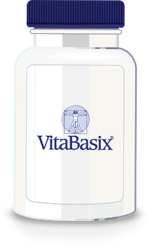The human body produces the energy it needs to fulfil its many functions not in just one special organ, but in almost every single one of its approximately 70 billion cells. The mitochondria are the “power plants” of our cells and are the key elements for generating the vitality of our body.
A connection between the number, size and performance of cellular mitochondria and the constant overload experienced by millions of young people and adults today is very likely. Feelings of weakness are the first signs of mitochondrial dysfunction. They can be caused by poor nutrition, lack of sleep, and physical and mental overload.
The main task of mitochondria is to produce energy through chemical reactions that convert fatty acids and glucose into a usable and transportable form of energy called ATP. The raw material needed to make ATP is obtained from food or from the breakdown of available tissue, such as stored fats. For this to work, the food you eat must first be broken down into simpler molecules such as carbohydrates, proteins and fats before being processed.
The oxygen in the air we breathe causes these molecules to oxidize in the cells, while the mitochondria provide energy in the form of ATP molecules. These highly reactive processes repeat themselves extremely quickly. The total amount of ATP produced in a day often exceeds a person’s body weight. Once a mitochondrion is no longer fully functional, the affected cell is more susceptible to multiple stress loads, resulting in a feeling of fatigue and tiredness.
When it comes to increasing energy production in the cell, the coenzyme NADH is a key molecule in the production of ATP, and thus a decisive factor. Additional helpers are the vitamins, B6, C, and E as well as the amino acids L-carnitine and L-arginine. NADH is found in all foods, be they of animal or plant origin, but especially in meat and fish as well as green vegetables.
Other nutrients that can have a positive effect on the energy level and the function of the mitochondria include:
Pyrroloquinoline quinone disodium salt – PQQ: PQQ is found in many foods, such as some fruits and vegetables, soy products and tea. In fact, the highest amounts of this nutrient are found in natto (fermented soybeans). The importance of PQQ for humans was only discovered in 2003. Besides regulating the general metabolism, muscle function and the immune system, it can also enhance many effects of other vitamins.
The main food source of L-carnitine is meat and, to a lesser extent, milk and dairy products. L-carnitine can help to channel substances needed for energy production into the mitochondria.
L-arginine is found in foods such as meat, nuts and legumes. Pumpkin seeds are particularly rich in this nutrient. It can enhance the body’s production of the growth hormone HGH, which helps build new muscle mass.
Omega-3 fatty acids are found in many types of fish such as tuna, mackerel, salmon, trout, as well as in certain cooking oils and nuts and seeds. As they are unstable chemical compounds, their effectiveness is protected by phytochemicals such as ginkgo biloba and the main active ingredients of red wine, resveratrol and quercetin. In addition, quercetin and other phytochemicals can help support the formation of new mitochondria. Onions in particular, but also kale and apples are good sources of quercetin.
Co-enzyme Q10 is found mainly in beef, chicken, sheep and lamb meat, fish and eggs. It plays an important role in the production of sufficient energy and can protect the mitochondria from harmful influences.
The bioactivity of many of the vital substances mentioned is further enhanced by vitamins B1, B2 and B12. B vitamins are found in many animal and plant foods such as fish, meat, eggs, nuts and legumes.



 Chronobrands
Chronobrands




Reviews
There are no reviews yet.